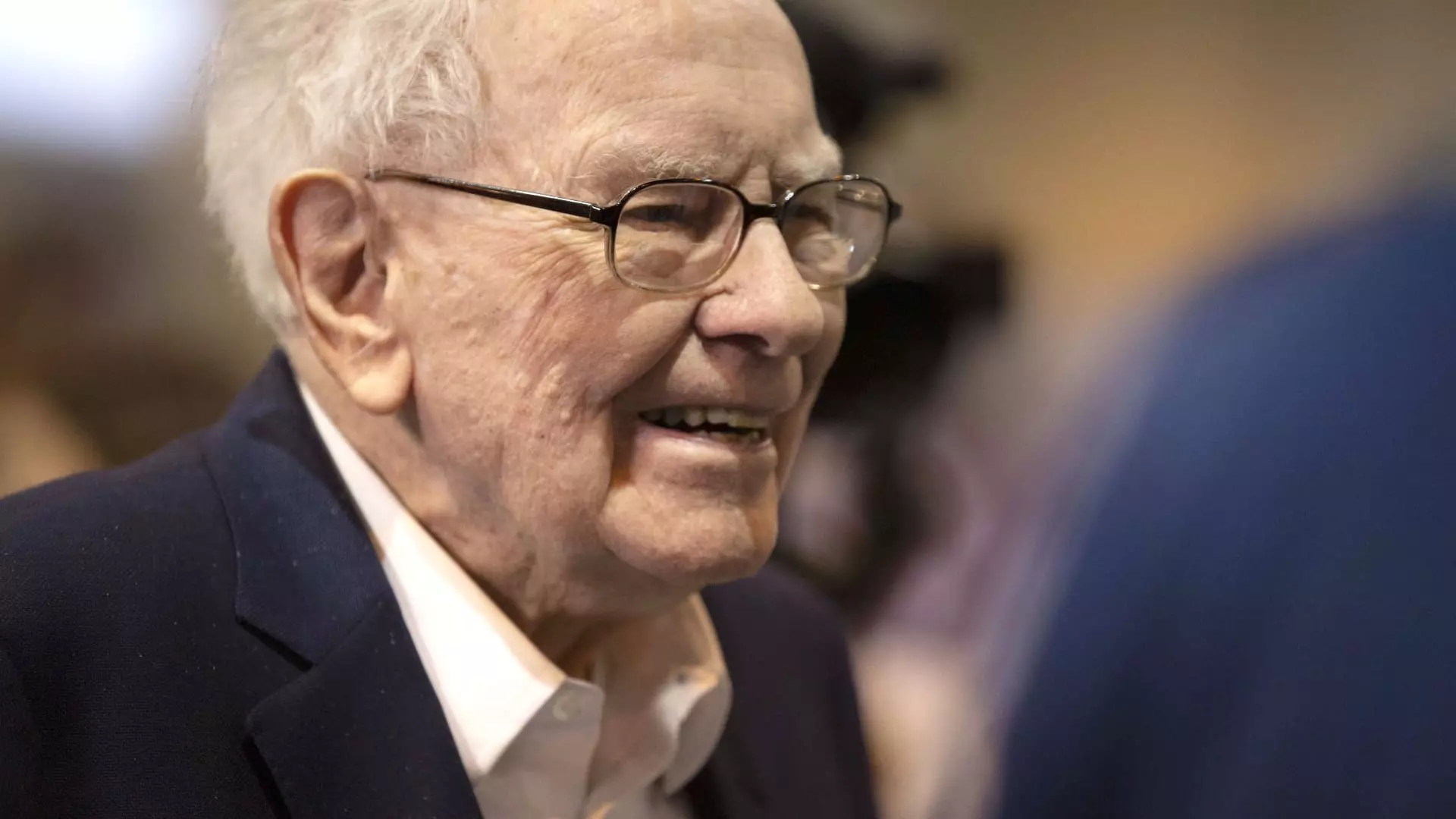Warren Buffett, the venerable CEO of Berkshire Hathaway, has long maintained a reputation as a savvy investor, well-regarded for his keen eye in identifying undervalued equities. However, his recent strategic shift has left many analysts and shareholders scratching their heads. In the latest quarter, Buffett executed significant stock sales, causing Berkshire’s cash reserves to swell to a staggering $334 billion. This move diverges sharply from Buffett’s historical investment philosophies and raises critical questions about his current market outlook.
The latest annual letter from Buffett did not provide the clarity that many had hoped for. While he reassured shareholders that his commitment to equities remains unwavering, the juxtaposition of selling stocks while amassing cash sends mixed signals. Buffett stated, “Berkshire shareholders can rest assured that we will forever deploy a substantial majority of their money in equities,” yet the current cash reserves raise eyebrows. This paradox begs the question: is Buffett preparing for an anticipated downturn, or is he simply unable to find suitable investment opportunities in an overvalued market?
As interest rates begin to trend downward from their historic highs, Buffett’s holding of a hefty cash reserve seems counterintuitive. In the past, he has expressed dissatisfaction with the overall market performance, citing high valuations and scant attractive options. Given this context, it appears Buffett’s actions reflect a growing wariness rather than a full retreat from equities.
The question of why Buffett has accumulated such a large cash position is particularly pertinent given Berkshire’s previous predilection for equity holdings. Analysts have increasingly voiced concerns about the company’s strategy, as the cash pile grows while equities continue to be sold—more than $134 billion in total across the last year. Two significant holdings, Apple and Bank of America, contributed heavily to this divestiture. This marks the ninth consecutive quarter in which Berkshire has net sold equities, amplifying the sense of unease among shareholders.
Buffett’s stance on repurchasing shares also raises eyebrows, as he has not engaged in this practice during a time of impressive operational earnings growth. With the S&P 500 soaring more than 20% over the past two years and the perennial upward trajectory of the market, many have wondered why Buffett remains hesitant to capitalize on these gains. His strategy could suggest a deeper apprehension about future market conditions or perhaps a signal that he intends to hand over a robust financial foundation to his successor.
The broader market environment adds another layer of complexity to Buffett’s decisions. Signs of economic slowing and volatility arising from unpredictable political landscapes, particularly the recent actions of the Trump administration, could prompt a cautious approach. Buffett himself hinted at valuation concerns in his letter, noting his impartiality toward different equity vehicles—pointing to the possibility of heightened uncertainty and fewer enticing opportunities.
Buffett makes a compelling case when he asserts, “often, nothing looks compelling; very infrequently we find ourselves knee-deep in opportunities.” This sentiment resonates with the experiences of many investors who feel trapped in a market increasingly dominated by speculation rather than fundamentals. The accolades regarding his designated successor, Greg Abel, suggest that the baton is being passed to a new caretaker of Berkshire’s substantial portfolio amidst this uncertain climate.
Despite the current caution, Buffett signaled one area of optimism: his enduring interest in the five Japanese trading houses he has been accumulating over the past six years. In his letter, he indicated potential future increases in these positions. This move could signify a strategic pivot toward international investments that hold promise despite the temperamental domestic market.
In sum, Buffett’s recent actions should not merely be interpreted as retreat but rather as a recalibration of strategy amid uncertainty. As Berkshire Hathaway stands at this crossroads, the philosophy of value-driven equity investment continues to face scrutiny within a landscape characterized by volatility and unpredictability. For shareholders, the prospect of transitioning under Greg Abel’s stewardship offers a cautious sense of hope, yet the overarching uncertainty generates questions about the future trajectory of one of the most iconic investment companies in history. Whether this cash hoard will serve as a fortress against market headwinds or a readiness for strategic opportunity remains to be seen, leaving both shareholders and market observers on high alert.

